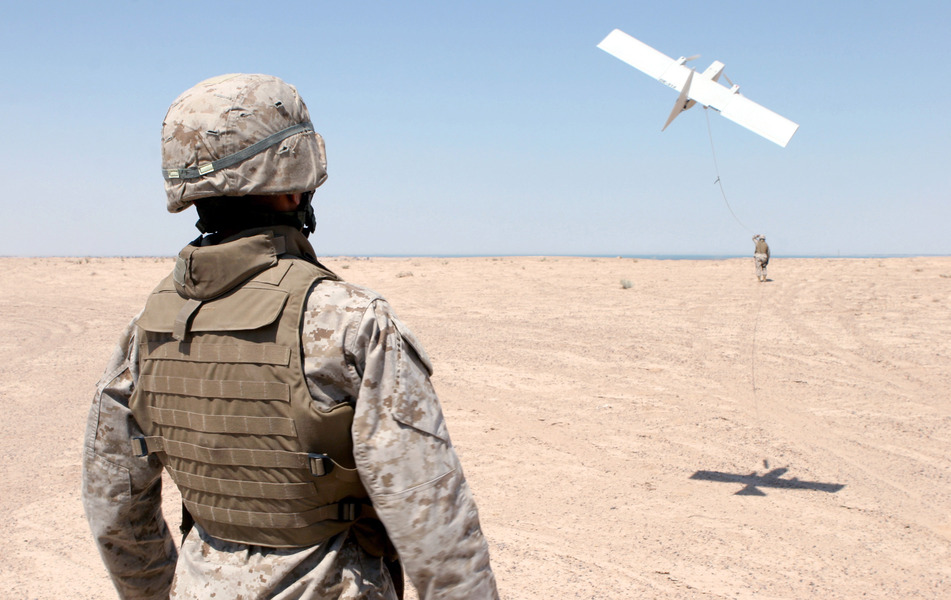What Would Mary Ellen O'Connell Do?
The other night, with CNN reporting very tentatively that the Bin Laden operation had likely been a drone strike, Bobby and I got a little ahead of ourselves. Bobby said that it will "be interesting indeed to see how [drone] critics will react should it prove to be the case that this was indeed a CIA-operated drone strike in Pakistan." I went a little further, saying that while Bobby is too nice to name names, "I’m not.
Published by The Lawfare Institute
in Cooperation With

The other night, with CNN reporting very tentatively that the Bin Laden operation had likely been a drone strike, Bobby and I got a little ahead of ourselves. Bobby said that it will "be interesting indeed to see how [drone] critics will react should it prove to be the case that this was indeed a CIA-operated drone strike in Pakistan." I went a little further, saying that while Bobby is too nice to name names, "I’m not. I want to hear from Mary Ellen O’Connell on this. Was this strike–if it was, in fact, a drone strike–unlawful? Are the CIA personnel who conducted it war criminals?"
A few minutes later, it became clear that it wasn't a drone strike, after all. So I suppose I should offer an apology for having jumped the gun and gotten all snarky about Professor O'Connell. I've thought about it now for more than 24 hours, and drones or no drones, I stand by what I said: I still want to hear from Mary Ellen O'Connell on this.
There were, of course, two errors in what I wrote--both of which were cautious, tentative repetitions of cautious, tentative CNN reporting: The operation was not a drone strike, and the boots on the ground were military, not CIA. But the point of the post still stands. The operation was a targeted killing. We learned over the next day that it was conducted without the prior consent of the host government, a matter on which O'Connell stakes a great deal in her writing. And it took place in a country in which she does not acknowledge the existence for legal purposes of an armed conflict. Whether it was conducted with a drone or a bullet is merely a technological question.
So my questions for Professor O'Connell still stand: Was the strike unlawful? And are the personnel who conducted it criminals--people who conducted an unauthorized killing in a sovereign state outside of the context of an armed conflict and without the consent of that state? Everything I have read of O'Connell's writing leads me to think she would have to answer these questions in the affirmative--and would have to regard Barack Obama's ordering of the operation as the latest act in his prolific career as a serial killer.
O'Connell begins addressing the issue in this Politico story, in which she stakes a great deal on the fact that it was not a pure kill operation--that is, not really a targeted killing at all:
Terrorism--even that perpetrated by Osama bin Laden--is a criminal action and doesn’t necessarily require military force, according to Mary Ellen O’Connell, a law professor at the University of Notre Dame. “If we’re not there by the authorization of the U.N. Security Council, then we should be using law enforcement methods--not military force,” she told POLITICO. But O’Connell added that at least for the time-being, White House counterterrorism John Brennan’s statement on Monday that “if we had the opportunity to take [bin Laden] alive, we would have done that,” was significant. “It was very important that he said that, as that would have been consistent with what international law and fundamental principles of the rule of law would require,” O’Connell said.The trouble for O'Connell is that this is a thin factual reed. As the Politico also reported last night:
The White House backed away Monday evening from key details in its narrative about the raid that killed Osama bin Laden, including claims by senior U.S. officials that the Al Qaeda leader had a weapon and may have fired it during a gun battle with U.S. forces. . . . [D]uring a background, off-camera briefing for television reporters later Monday, a senior White House official said bin Laden was not armed when he was killed, apparently by the U.S. raid team. Another White House official familiar with the TV briefing confirmed the change to POLITICO, adding, “I’m not aware of him having a weapon.” “The bottom line is the team that entered that room was met with resistance and took appropriate action,” said a third American official. The White House on Monday night declined to elaborate on the nature of the resistance bin Laden allegedly put up. However, an official confirmed that the Al Qaeda founder was shot twice, once in the head and once in the chest.If O'Connell is staking her belief in the legality of this operation on the goal of taking Bin Laden alive, I fear she's going to have a problem on her hands. In any event, Lawfare would be happy to publish her analysis of what we know about this operation under her view of the relevant law.
Benjamin Wittes is editor in chief of Lawfare and a Senior Fellow in Governance Studies at the Brookings Institution. He is the author of several books.


.jpg?sfvrsn=82a6ee72_5)


